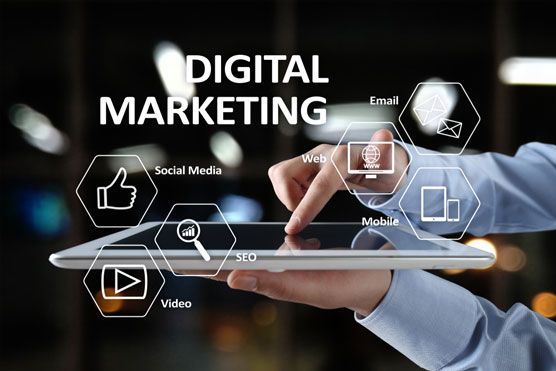
Digital marketing encompasses various strategies and tactics used to promote products, services, or brands using digital channels. Here are the key areas you can expect to learn in a digital marketing course:
-
Introduction to Digital Marketing: Understanding the basics of digital marketing, its importance in today's business landscape, and the evolution of digital channels.
-
Website Optimization: Learning how to optimize websites for search engines (SEO) to improve visibility and organic traffic. Understanding on-page SEO factors like keywords, meta tags, site structure, and off-page SEO techniques like link building.
-
Content Marketing: Exploring content marketing strategies for creating valuable, relevant, and engaging content to attract and retain a target audience. Learning about content formats, storytelling, distribution channels, and content promotion.
-
Social Media Marketing: Understanding how to leverage social media platforms like Facebook, Instagram, Twitter, LinkedIn, and YouTube for marketing purposes. Learning about social media algorithms, content creation, community management, paid advertising, and analytics.
-
Email Marketing: Learning how to use email marketing to build and nurture relationships with leads and customers. Understanding email marketing best practices, segmentation, personalization, automation, and measuring campaign performance.
-
Pay-Per-Click (PPC) Advertising: Exploring paid advertising platforms like Google Ads (formerly Google AdWords) and social media advertising platforms. Learning how to create, manage, and optimize PPC campaigns, keyword research, bidding strategies, ad targeting, and ad copywriting.
-
Display Advertising: Understanding display advertising networks and techniques for creating and optimizing display ad campaigns. Learning about banner ads, remarketing, targeting options, ad formats, and ad creative optimization.
-
Analytics and Data Analysis: Learning how to use web analytics tools like Google Analytics to track and analyze website traffic, user behavior, and campaign performance metrics. Understanding key performance indicators (KPIs), data visualization, and reporting.
-
Conversion Rate Optimization (CRO): Exploring techniques for optimizing conversion rates and improving the effectiveness of digital marketing campaigns. Learning about A/B testing, landing page optimization, user experience (UX) design, and persuasive copywriting.
-
Mobile Marketing: Understanding mobile marketing strategies for reaching and engaging mobile users. Learning about mobile-responsive design, mobile apps, SMS marketing, mobile advertising, and location-based marketing.
-
Search Engine Marketing (SEM): Learning about search engine marketing strategies, including organic search (SEO) and paid search (PPC). Understanding how to integrate SEO and PPC efforts for maximum impact and visibility.
-
Marketing Automation: Exploring marketing automation platforms and tools for streamlining repetitive tasks, nurturing leads, and managing customer relationships. Learning about workflow automation, lead scoring, drip campaigns, and customer journey mapping.
-
E-commerce Marketing: Understanding digital marketing strategies specifically tailored for e-commerce businesses. Learning about product listing optimization, shopping ads, product feed management, cart abandonment recovery, and customer retention tactics.
